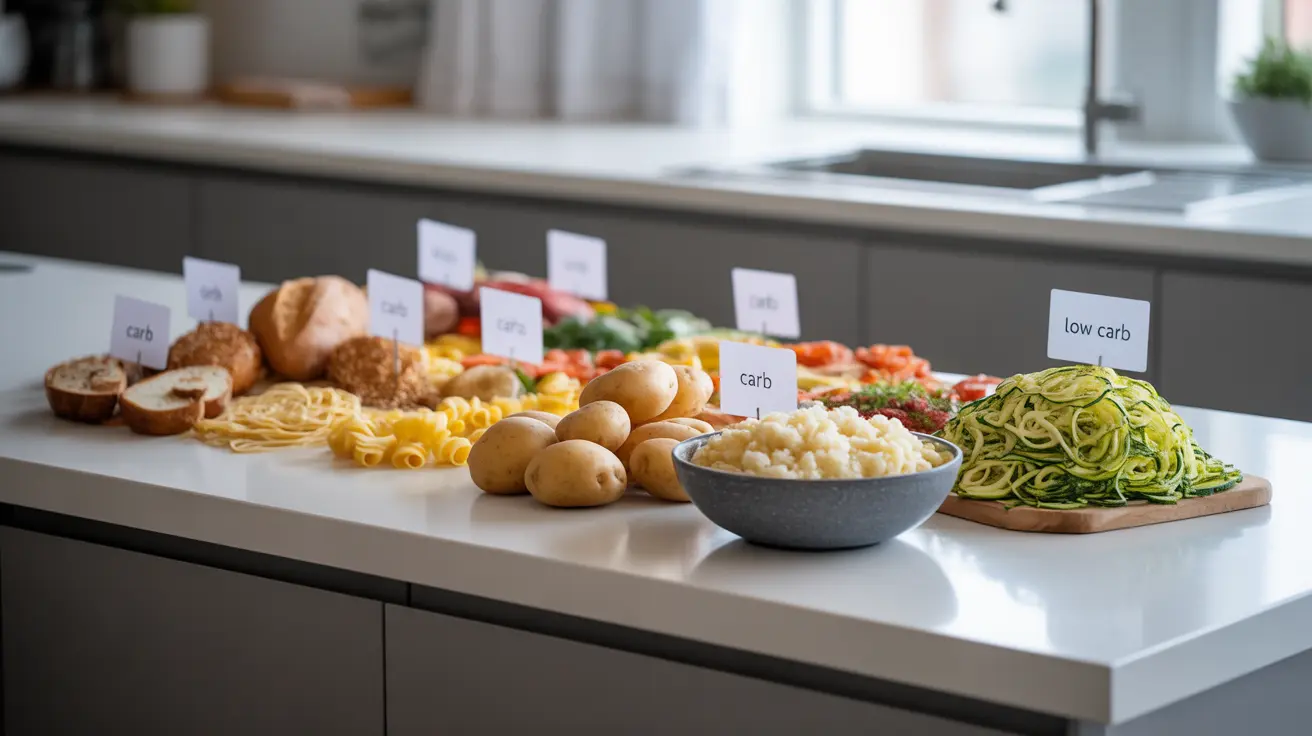Following a low-carb diet requires careful attention to food choices, particularly identifying and avoiding high-carb foods that can derail your health goals. Understanding which foods are surprisingly high in carbohydrates and finding suitable alternatives is crucial for maintaining a successful low-carb lifestyle.
This comprehensive guide will help you identify common high-carb foods to avoid and explain why they may interfere with your low-carb diet objectives. We'll also explore healthier alternatives that can help you stay on track.
Grain-Based Products to Avoid
Many traditional grain-based foods are significant sources of carbohydrates that can quickly exceed your daily carb limits:
- Bread (including whole wheat and gluten-free varieties)
- Pasta and noodles
- Breakfast cereals
- Rice (white, brown, and wild)
- Crackers and pretzels
- Baked goods and pastries
These foods are typically processed and can cause rapid blood sugar spikes, making them particularly problematic for those following a low-carb diet or managing diabetes.
Starchy Vegetables to Limit
While vegetables are generally healthy, some contain significantly higher amounts of carbohydrates:
- Potatoes
- Sweet potatoes
- Corn
- Peas
- Winter squash
Instead, focus on low-carb vegetables like leafy greens, cauliflower, broccoli, and zucchini, which provide essential nutrients without excessive carbs.
High-Sugar Fruits to Monitor
While fruits offer valuable nutrients, some contain concentrated amounts of natural sugars:
- Bananas
- Grapes
- Mangoes
- Dried fruits
- Fruit juices
Consider lower-carb fruit options like berries, which provide antioxidants and fiber while keeping carbohydrate intake moderate.
Processed Foods and Beverages
Many processed foods contain hidden carbs and added sugars:
- Sweetened yogurt and flavored milk
- Soft drinks and energy drinks
- Breakfast bars and granola
- Chips and processed snacks
- Sweetened coffee drinks
- Commercial sauces and condiments
These items often combine multiple forms of carbohydrates and can quickly derail your low-carb goals.
Better Low-Carb Alternatives
Replace high-carb foods with these nutritious alternatives:
- Cauliflower rice instead of regular rice
- Zucchini noodles in place of pasta
- Lettuce wraps instead of bread
- Plain Greek yogurt rather than sweetened varieties
- Nuts and seeds instead of chips
- Sparkling water with lemon instead of sodas
Frequently Asked Questions
What high carb foods should I avoid to effectively follow a low-carb diet?
Focus on avoiding refined grains, sugary beverages, starchy vegetables, and processed snacks. Key items to eliminate include bread, pasta, rice, potato products, sweetened drinks, and most packaged snack foods.
How do high carbohydrate foods like bread, pasta, and starchy vegetables affect blood sugar levels?
These foods are quickly broken down into glucose, causing rapid blood sugar spikes followed by crashes. This can lead to energy fluctuations, increased hunger, and difficulty maintaining stable blood sugar levels.
Are fruits like bananas and grapes too high in carbs for a low-carb or diabetic diet?
While nutritious, bananas and grapes are relatively high in natural sugars. Those following strict low-carb diets may need to limit or avoid these fruits, focusing instead on lower-carb options like berries, which offer better glycemic control.
Why should I limit foods like sweetened yogurt, fruit juice, and snack chips on a low-carb eating plan?
These foods often contain added sugars, hidden carbs, and processed ingredients that can quickly exceed your daily carb allowance. They typically offer limited nutritional value while potentially disrupting blood sugar control.
What are better low-carb alternatives to common high-carb foods like milk and gluten-free baked goods?
Consider unsweetened almond or coconut milk instead of regular milk, and try making baked goods with almond or coconut flour. Other alternatives include using vegetable-based substitutes like cauliflower rice or zucchini noodles for traditional starches.




